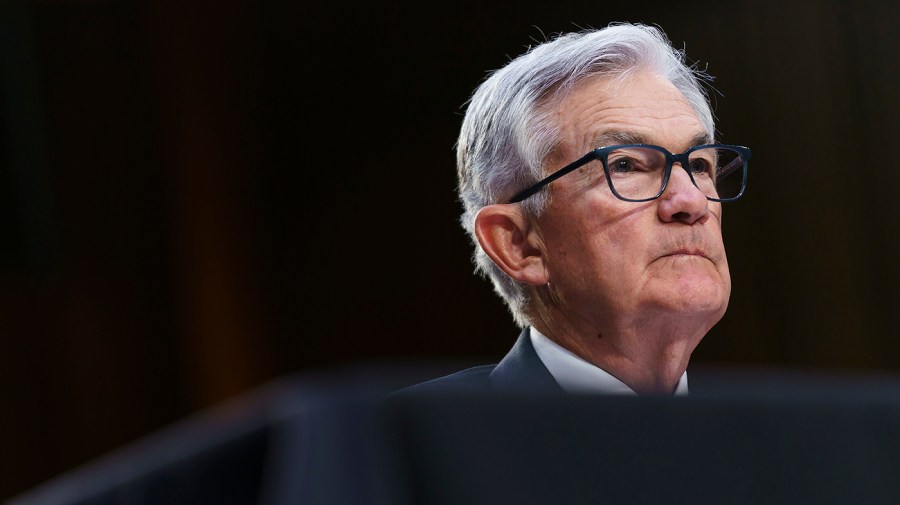Here’s how the debt limit fight could impact the banking crisis
Editor’s note: This file has been corrected with proper attribution for a quote from Dean Baker.
The banking system is showing signs of stabilizing after the collapses of Silicon Valley Bank (SVB) and Signature Bank, but the looming battle to stave off a national default could complicate that rebound.
Congress has anywhere between June and the start of fall to raise the debt limit, which caps how much money the Treasury can owe to cover the nation’s bills, or risk a federal default — an outcome economists say could yield devastating effects for the economy.
On watch: Banking crisis not over yet, Jamie Dimon warns
Treasury Secretary Janet Yellen told lawmakers after the collapses of SVB and Signature that a breach of the debt limit would be “completely devastating” to the banking industry.
“I don’t think that Congress should for a second contemplate the possibility of not raising the debt ceiling to pay our bills,” she warned last month.
“This is the cornerstone of what makes our financial markets the soundest and best in the world and people trust that the government stands ready to pay its bills.”
But Democrats and Republicans are split over how to address the debt ceiling. Though both sides have vowed to work to prevent a default in the months ahead, some experts say that the closer the nation gets to a potential default, the greater the potential risks to financial markets — including the recently hit banking system.
“We all talk about the drop dead date … but we will be seeing tensions in advance of that,” said Dean Baker, co-director of the Center for Economic and Policy Research.
“We have to worry about getting close to that and creating fears because obviously people are fearful for the security in the banking system,” he said.
How debt ceiling fears could hit the banking sector

SVB collapsed less than a month ago as clients withdrew billions in the span of hours amid fears over the security of their deposits.
Though the Fed appears to be nearly done with hiking interest rates, concerns over a debt ceiling impasse could drive borrowing costs higher. Experts say that could boost financial pressure on other banks like SVB, which lost billions of dollars as the bonds they held dropped in value amid rising rates.
Banking legislation piles up as wobbly market evolves
If the debt limit isn’t raised or if investors fear the nation is headed for default, bond interest rates could rise “if investors think there’s a higher probability they won’t get repaid on time,” said Ben Ritz, director of the Progressive Policy Institute’s Center for Funding America’s Future.
“Higher interest rates stemming from fear of a default — or an actual default — will reduce the value of outstanding bonds. That reduces the value of banks’s capital reserves, makes it harder to cover deposits and you’re just more at risk of a Silicon Valley Bank-like situation,” Ritz said.
Where debt ceiling talks stand

The White House and Democrats have been adamant that Congress should quickly pass a clean bill raising the debt limit without conditions. Republicans have drawn red lines around raising or suspending the roughly $31.4 trillion cap without fiscal reforms or spending cuts, but Democrats insist any budget negotiations be carried out separately from debt limit talks.
Chew on that: McCarthy offers to make Biden ‘soft food’ lunch if he will meet on debt limit
Even so, lawmakers on both sides say the nation will not default and many financial experts also downplayed the possibility given the serious economic and financial stakes.
“Bank fragility highlighted that a strong recovery can be undermined by poor decisions from even medium-sized players in financial markets,” David Mitchell, director of government and external relations for The Washington Center for Equitable Growth,
And a national default, he added, “would be orders of magnitude more impactful than that.”
How safe is the banking sector now?

While several factors contributed to the run on SVB, the bank was hit hard financially by the steep increase in interest rates driven by the Federal Reserve.
“We got to remember that it was driven by banks kind of structuring their investments, not prepared for rapid interest rate increases,” Ritz said of the ongoing banking crisis, noting higher interest rates “devalues bonds, which reduces the capital reserves” and and can make “it easier for a bank to collapse.”
But experts have been cautiously optimistic about the path to recovery in the weeks since, crediting swift federal response to the failure with helping mitigate the fallout.
Roll it back: Yellen says Trump administration ‘decimated’ financial oversight
As part of the response, the FDIC backed up account holders through its deposit insurance fund. The Fed also set up a special lending facility to provide further support, as officials worked to bolster Americans’ confidence in banks.
Katheryn Russ, a nonresident senior fellow at the Peterson Institute for International Economics, said the recent accommodations should “go a long way toward quelling any unease that people have in the safety of their bank deposits.”
“Just based on how swiftly this came to congressional attention,” Russ said, “and the strength of interest among policymakers to reassure depositors, I’m not sure that people would have the same unease about their deposits in the future.”
Other experts have expressed confidence in public trust remaining steady over the coming months.
“Even if people get anxious, I think as long as we raise the debt limit in time than I wouldn’t be worried about there being this kind of public trust collapse and, like, a run on all the banks,” Ritz said.
On the table: Senators laser-focused on bank failures
At the same time, lawmakers have also been eyeing potential legislation in response to the ongoing banking crisis, including measures that would repeal a 2018 law that loosened regulations on banks like SVB. But others have held off on endorsing major policy changes as the dust settles.
“There’s nothing written in stone that this period of stabilization is going to last,” Stifel Chief Washington Policy Strategist Brian Gardner said. But if the industry continues to stabilize, he added that lawmakers would likely feel less pressure “to act.”
“We’re not in the panic mode that we were two or three weeks ago,” he said, though he added “that is all subject to change.”
–Updated on April 10 at 11:16 a.m.
Copyright 2023 Nexstar Media Inc. All rights reserved. This material may not be published, broadcast, rewritten, or redistributed. Regular the hill posts







